Proposed laws which campaigners have said are key to revitalising Dublin's nightlife need to be prioritised by the Government, according to the Give Us The Night group.
The campaign group said that allowing nightclubs to open until 5am would transform the capital's night-time economy.
Dublin's Night-Time Economy Adviser Ray O'Donoghue backs those calls, but said more late cultural events, public transport and policing are also needed.
In 2000, Dublin had around 100 nightclubs, but that figure has since dwindled to just 23.
Give Us The Night spokesman Sunil Sharpe said a change in approach to licensing in 2008 contributed to that decline and while the last government began drafting legislation to allow later closing times for the sector, progress stalled just before the General Election.
He said the Programme for Government has committed to reforming licensing laws, but it will take new Minister for Justice Jim O'Callaghan to drive any changes forward.
"At the moment, any venue that uses a special exemption order, which includes nightclubs, can open until 2.30am and patrons need to be out of the venue by 3am. We just want some flexibility with the closing times at this point," Mr Sharpe said.
"But crucially, we want what's being promised. There's a draft piece of legislation that's there. There is a commitment in the new Programme for Government to publish and to enact this legislation.
"So, for us now, it's about the timeline. When is it going to be done? And this will take a proactive action from the new Justice Minister."
He added: "At the moment, we have the earliest closing times in Europe. But even after we change that, we'll still be the earliest. Really, what we're looking here for is a moderate change. It's a very small change, but it will make a very big difference to the venues involved."
Narrative about Dublin needs to change
Dublin's Night-Time Economy Adviser said he also believes it is time to reform the licensing laws, but that more late cultural events, public transport and policing are also key to revitalising the capitals night-time economy.
Mr O'Donoghue, who has been in the newly created role for almost a year now, said the narrative about Dublin city also needs to change
"There is a perception that it's unsafe, but actually, globally, it's a safe city. The statistics are there, but it's just sometimes people don't feel safe.
"We've some safety initiatives to find help with that feeling of safety. Extra security on buses. We put a welfare area safe space in over Christmas for a few nights, we want to bring that in on a more permanent basis," he said.
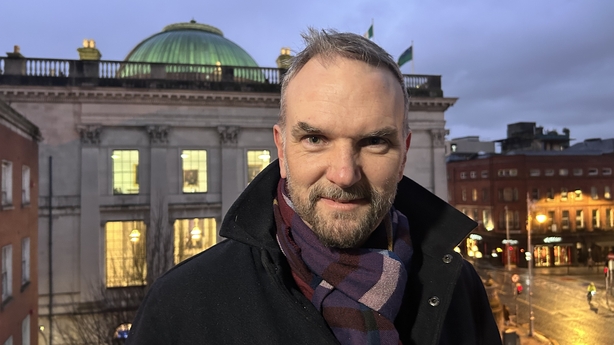
Mr O'Donoghue added: "You know, we need to promote the positivity of the city. There's eight million tourists coming in every year. They're coming in for a reason, because, you know, it is great city."
However, any changes are likely to come up against, what is being described, as a cultural shift towards earlier socialising.
Last weekend in Dublin, the Academy Theatre on Middle Abbey Street played host to a sold-out club event called 'Day Fever’.
Six hundred people packed the venue’s dancefloor which would suggest Dublin's nightclub life is alive and well. But the event began at 3pm and closed its doors at 8pm.
Chris McClure, one of the founders of the event, which is backed by British actress Vicky McClure, said they have tapped into a desire for people to go home early.
"We were kind of fed up with the late-night thing. We still want to go out, but didn't want to feel rough on a Sunday, we've got other commitments, so we decided to put a party on, but we just moved the times.
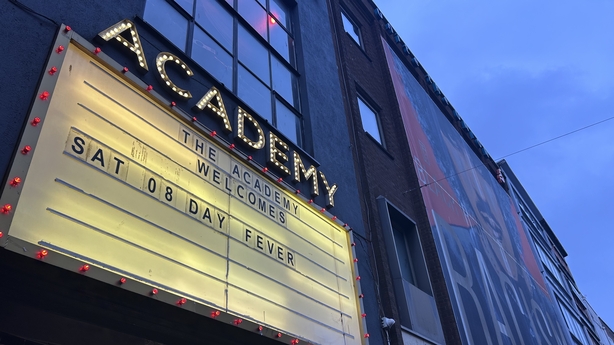
"We started with two events and we're now in 23 towns and cities across UK and Ireland 12 months in. We've hit on something that people were ready for and wanted," he said.
Mr McClure added: "Our audience is highly female, and a lot of what they feed back to us is that they feel safe. They don't have to be walking out city centres late at night struggling for taxis.
"They can go out a gang of them, they can maybe go and have chips and cheese after, and they can still get home at a reasonable time and have a family day Sunday.
"And it is quite funny when you leave the venue and you see people coming home with the shopping bags, and you've been partying and raving for five hours."
'Night-time is not very nice'
Sisters Aoife and Ciara Burke and their friend Laura from Rush said they found going out by day a much safer and enjoyable experience.
"I'm much prefer going out at daytime. It's safer in every way. It's harder to get home, it’s more messier on the street [at night-time]," Laura said.
"The night-time is not very nice," Ciara said.
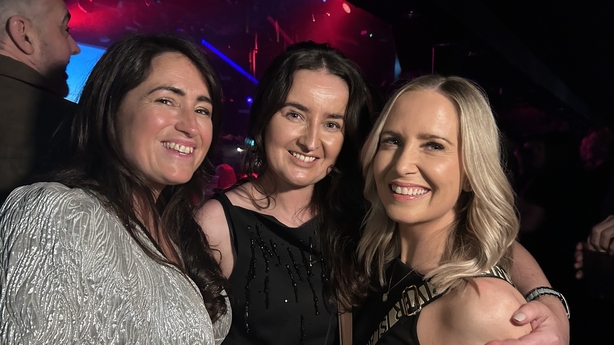
"We're old and we want to go home early," Aoife said. "And we have children who depend on us," interjected Ciara.
Avril Manley from Bray and Lisa Smith from Palmerstown said socialising by day did not take away from the experience.
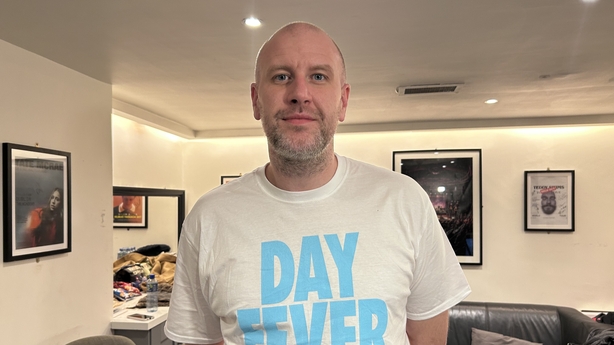
"I find it amazing. It's my third time coming and I'm addicted. Everyone is in a good mood, and nobody has to worry about getting up so it's great.
"You've got the whole night to recover and the morning. I have three little boys and they're up early the next morning," Ms Manley said.
"You can get the bus if you want. You can stay out if you want," Ms Smith added.
Restaurants too say they are seeing a shift in how people dine out in the capital with most bookings now for early evening and premises closing much earlier than before.
William Monaghan, who is the owner of 'One Society' on Gardiner Street and ‘Hidden by One Society’ in Smithfield, said a lack of options is one of the reasons for people change in habits.
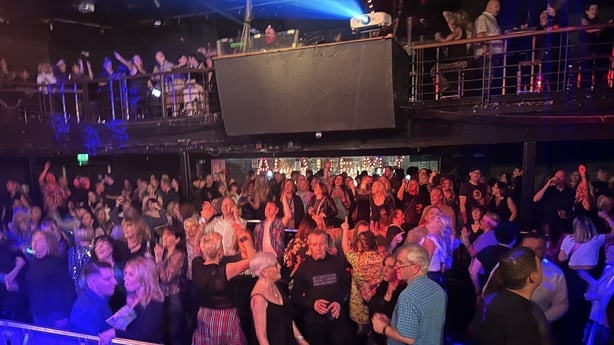
"We find that we're really busy between about 6.45pm and 8.30pm. Our night-time trade is all done in that period.
"We get less bookings [after] 8.30pm at night, and we find that people just want to be in and out and gone home," Mr Monaghan said.
He added: "I think a lot of younger people don't drink and party the way we used to.
"But it's also down to options and there's not the options for customers to stay out later or go elsewhere after they're in a restaurant.
"And the reality is transport isn't backing up the desire and the need of the customer."






